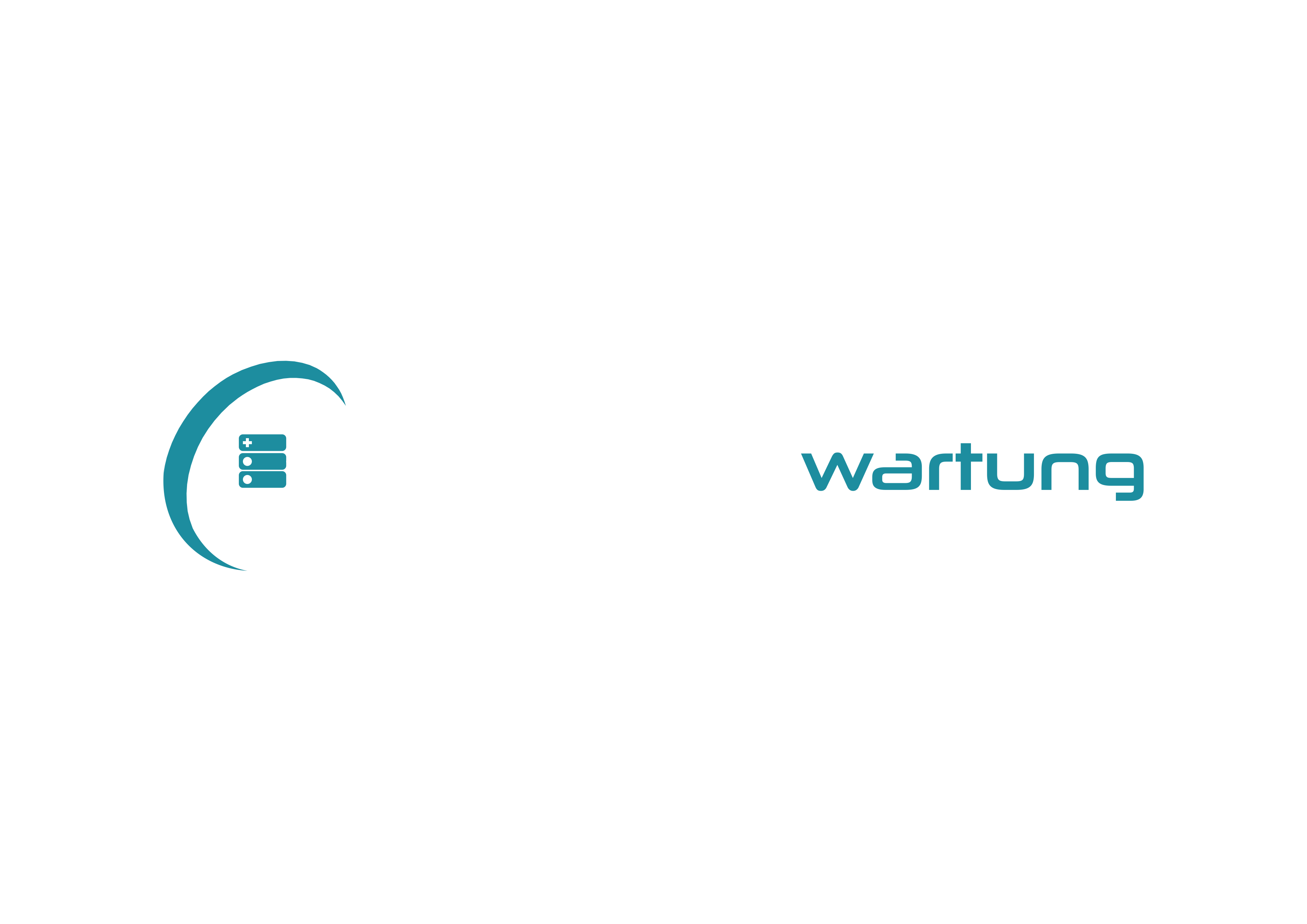When purchasing hardware, maintenance has become an increasingly important issue. IT giants like Google have therefore long since stopped buying hardware from well-known manufacturers such as HP, IBM or Dell, instead they build their own infrastructure and maintain it themselves. There are many reasons for this.
- The use of standard components without additional features and other gimmicks saves a lot of money when shopping.
- You can upgrade your hardware individually without having to replace the entire device.
- They do not pay maintenance contracts but manage and repair their hardware themselves. This also saves a lot of money.
If you look closely, Google is one of the largest third-party maintenance companies in the world. But what does third-party maintenance actually mean? Strictly speaking, it just means that the maintenance company is independent of manufacturers. This means that they do not strive for partner status, such as GoldPartner, PremiumPartner, Certified by etc. with manufacturers. What most people don’t know is that the partner status forces the maintenance company into a very tight corset of rules, which very often has disadvantages for the end customer.
Here are some of the rules that apply to almost all manufacturers in one form or another for their partners.
- A certain number of employees must be certified for a manufacturer’s product at their own expense.
- A part of the total turnover must be achieved by additional services, such as Care Packages, warranty extension, extra service for maintenance, etc..
- The sale of competing products is prohibited.
- The sale to a Re-Seller is forbidden.
- The maintenance company must provide the manufacturer with a flat rate for the management of spare parts.
At first sight these rules look harmless and seem to have the intention to improve the quality of the maintenance provider. But let’s take a closer look.
Certification for employees
Every customer wants a service representative who is highly qualified and can solve problems quickly. Often it is assumed that a certification program of a manufacturer offers exactly this qualification. But every IT decision-maker who has already hired highly certified employees knows that know-how and certification have little to do with each other. But I don’t mean to say that certification is worth nothing. On the contrary, it proves that an employee has dealt with the topic theoretically for a while and was able to reproduce approx. 70% of this knowledge during an examination. Of course there are more meaningful and less meaningful certifications, but they all have one thing the same. They cost a lot of money and have a manageable benefit for the end customer. The manufacturer, on the other hand, benefits very much. With every certification he earns from his partners. It enjoys a reputation for doing everything in its power to train highly qualified partners and only approach customers with them. In addition, he improves the market position of his proprietary products. An ingenious strategy, but unfortunately far removed from real customer benefits.
Additional Service Sale obligation
With some hardware manufacturers, partners must earn up to 50% of their revenue through additional services in order not to lose their partner status. This has far-reaching consequences that some IT managers have already felt. An irritable salesperson who wants to sell them another Care Package for their test environment and threatens to make them not so good prices with another maintenance contract is not uncommon. Well, that’s not always because the salesperson wants to make more sales with them or wants to exclude them, but because his company is about to lose its partner status because it has only sold services to customers who really made sense for them. These rules serve the pure profit increase of the manufacturer and not of the partner or customer. The production and sale of hardware works with very tight margins, but maintenance is very lucrative. Especially in the first 3 years. There are statistics from large insurance companies saying that less than 10% of the high quality equipment used in data centers, such as Server, Storage or Network components, fail in the first 3 years. Even if, for example, a server fails, it is usually not the most expensive spare parts such as hard disks, power supplies or motherboards. These are simply exchanged and resold as refurbished hardware.
Even if the sale of additional maintenance packages is not always bad for the customer, the prices are much too high for the low risk. If a third party maintenance company would get the chance to offer a similar maintenance service the prices would be about 20% below those of the manufacturer although they would have to buy the spare parts first. However, this question hardly ever arises, because no customer would ever take maintenance from another company than the manufacturer when purchasing hardware for the first time.
Competition Ban
If you want to become a GoldPartner you have to overcome some hurdles and one of them is the absolute commitment to a manufacturer. This includes fully backing this company and sharing its strategic goals. One of these goals is clearly market leadership and a ban on strengthening competition. Unfortunately, it is often the case that one manufacturer is very good in one area but very bad in another. However, as an IT service provider, it is your task to meet the customer’s requirements and find the best product for him. Here, the partner gets into a conflict of interest and often has to offer a less good product to stay in the race, which in turn weakens the relationship of trust with the customer. Some manufacturers have already recognized this lose-lose situation and have softened their rules a little.
Re-Seller ban
Every customer has the interest to get his maintenance as cheap as possible, but unfortunately this depends with the manufacturer on the partner status of the partner. The higher the status, the better the prices for maintenance and the cheaper it is for the end customer. Unfortunately not every company is big enough to negotiate with a PremiumPartner about 2 servers and one storage, so they turn to small maintenance companies that have only a low partner status and pay the full price here. If the manufacturer would allow re-sellers, they would be able to serve the entire SME market, but then they would not enjoy the previously listed benefits of the partner model.
Purchasing from the manufacturer before sale
Also with this rule it is often about the commitment of the partner to the manufacturer. And what is better than money for commitment? Don’t forget that the financial risk shifts from the manufacturer to the partner. The only thing the manufacturer has to offer is the option of better prices.
What is the benefit for the customer?
Now that we have seen that all the arguments that appeared to be for the end customer were merely to increase profits or reduce risk for manufacturers. Do we have to consider what this means for the customer? The fact is that the manufacturers have built up a very stable system that has little to shake. Almost every company needs hardware and if they want to control their risks they also need hardware maintenance. I think there are two broad directions that customers can march in.
The pragmatic path
The pragmatic way is to continue to buy these infrastructure products from the major manufacturers, preferably through the most certified partner or distributor. However, when it comes to maintenance, you should make sure that you conclude the maintenance contract for the entire LifeCycle. This means that if you plan to use servers for 5 years, you will conclude the maintenance contract for 5 years. This at least partially reduces the costs. If you don’t do this, you will be surprised to find that the maintenance costs increase to 2-3 times after the warranty expires. For example, if a server in the Care Package only cost 10€ per month in the first 3 years, it usually costs around 30€ per month after expiration of the contract. If you are already in the unfortunate situation that your maintenance contracts have already expired and you would have to renew, you should definitely request a quote from a third-party maintenance company.
The courageous path
The courageous path is that also Google has taken. Here, too, they take on a pioneering role and prove that not every game needs to be supported. Unfortunately, only a few of our readers will have the resources to do justice to this role. That’s why I suggest a “Courageous Path Light”. Buy your hardware where you want, but when it comes to maintenance you should always have a third party maintenance company offer it. You will see that the very stable system of the manufacturers can move here a little more to the customer. Websites like www.hardwarewartung.com will help you to find the right third party.
The question whether we are dealing with friend or foe with the manufacturers, we can not answer unequivocally. Like all companies, hardware manufacturers also try to increase their market power and profit from it as much as possible. There is nothing reprehensible about that. But the methods used by many are even for die-hard capitalists at the limit of what is bearable for customers. It is therefore in the value system of the observer to make a judgement. And it lies also in the hand of the customers to set here indications around change to initiate.

 Skip to content
Skip to content



